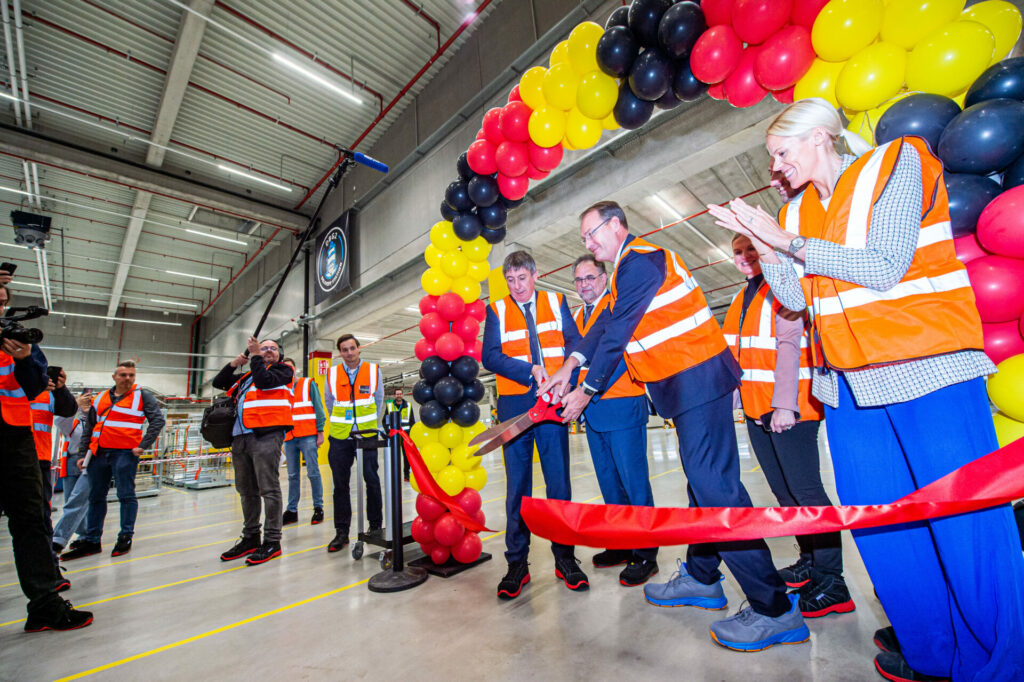On Thursday, the American e-commerce giant Amazon opened its first Belgian distribution centre in Antwerp, where parcels will arrive from distribution centres in France and Germany.
Parcels will be delivered to customers in Antwerp through subcontractors or courier companies. Around 60 people will be employed at the distribution centre, as well as 200 external drivers.
"We have long lagged behind in e-commerce in Flanders because of the somewhat more rigid legislation than in our neighbouring countries," said Flemish Minister-President Jan Jambon, who officially opened the new distribution centre on Thursday.
While Amazon does not have the best reputation when it comes to pay and working conditions, Jambon said that the company realised that "dealing with staff well is also good for the employer itself. The management has understood that very well."
Suspicious trade unions
Amazon.com's country manager Eva Faict told VRT that it has competitive wages to offer its delivery partners, and that it ensures that its subcontractor is not subcontracting another company. "We only work together in direct subcontracting."
Still, the trade unions are suspicious, Tom Peeters of the socialist trade union ABVV said on Flemish radio. "We have heard that Amazon.com monitors the timing for parcels very strictly in other countries."
According to him, Amazon.com works with a one-second-per-parcel rule and a very limited time for toilet breaks, for example. "In Germany, it is also known that people there have to work on 1 m² of working space. Surely these are things we definitely want to watch and we will also engage with the management if things go wrong there."
Related News
- Amazon online store launches in Belgium
- Where to buy ethical and sustainable clothing online and in Brussels
Founded by Jeff Bezos in 1994, Amazon.com has become the largest company selling goods over the internet. By 2020, Bezos was the first person to have assets of more than $200 billion.
While the company is often criticised for monopolistic abuse, it has also regularly made headlines for its poor pay and working conditions.
In the United States, the company has an anti-union policy and many wages are so low that workers are forced to take other jobs. In Germany, protest actions have been organised against poor working conditions and against the increased risk of mental and physical illness.

